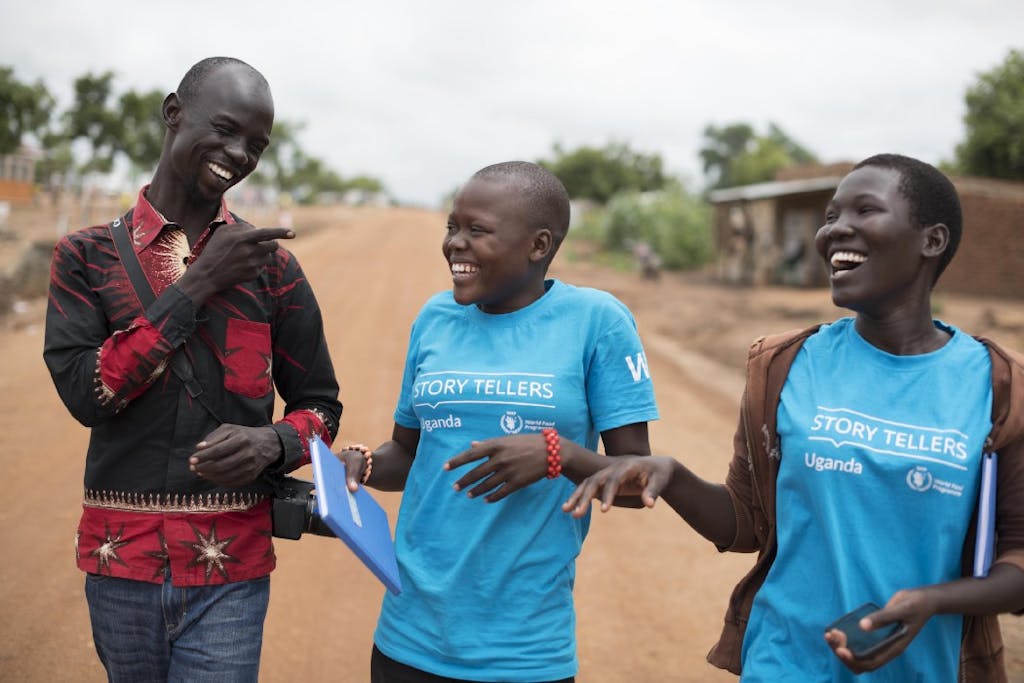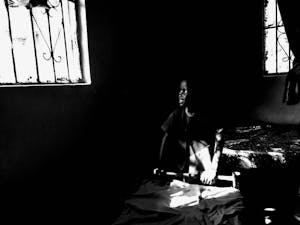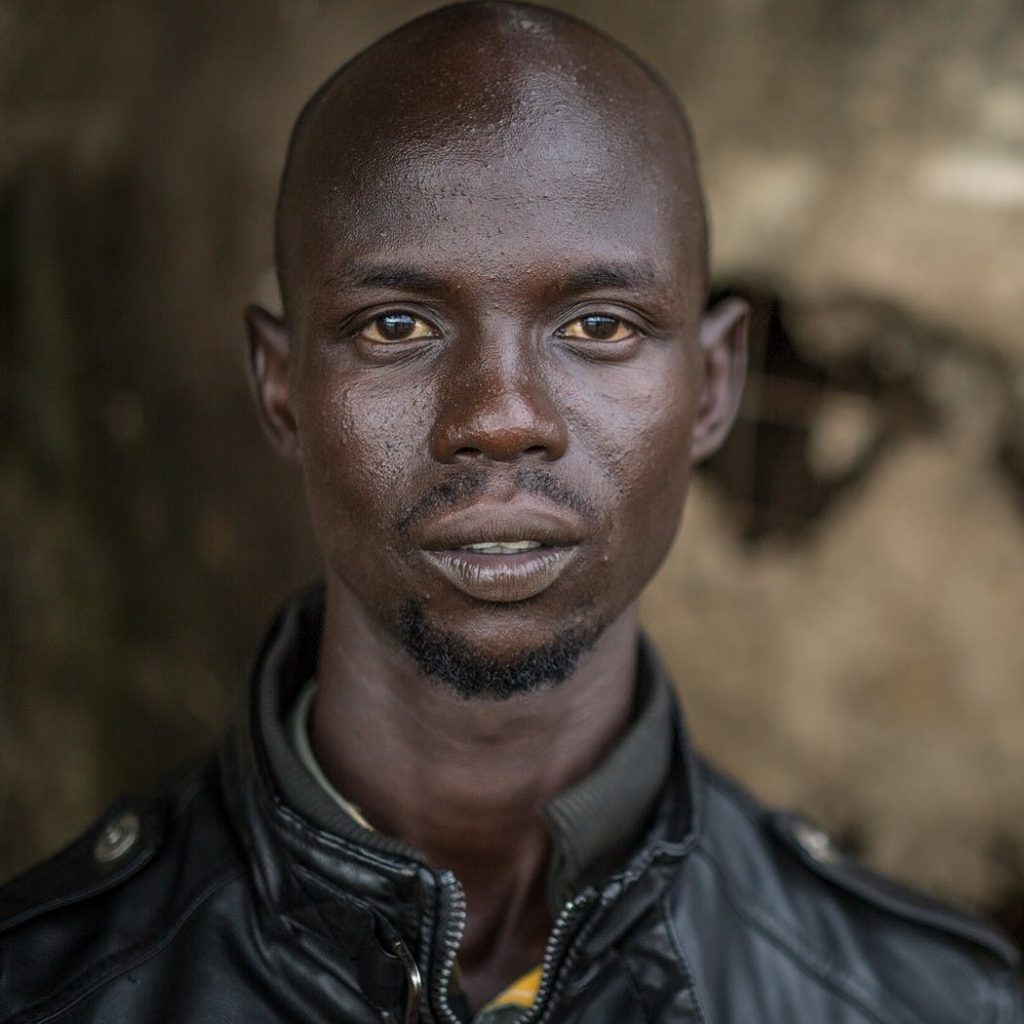
Bullen (left) laughs with two participants of the WFP Storytellers project during an assignment at the Bidibidi refugee camp in Uganda (©WFP/Hugh Rutherford)
WFP staffer Claire Nevill, who oversees the Storytellers program from the agency’s headquarters in Rome, says the goal is to help lift the voices of those who’ve experienced hunger and poverty firsthand. By teaching photography, videography, and social media skills and providing a platform to tell their own stories, Storytellers hopes to humanize what can seem like a distant or abstract problem — that one in nine people worldwide will go to bed hungry tonight. To date, WFP has trained 200 people in food-insecure communities in Jordan, Chad, Guatemala, Uganda, Bangladesh, and Djibouti.
Bullen helped lead a WFP Storytellers workshop at Bidibidi, a settlement in Uganda where tens of thousands of people have sought refuge from violence in neighboring South Sudan. As a former refugee himself, Bullen says he was honored to help train and inspire the next generation.
The experience not only gave Bullen the chance to share words of hope and encouragement with current refugees, it also reunited him with a childhood friend — a Storyteller participant named Spike — who had grown up with him at the Kakuma settlement in Kenya, which hosts refugees from nearly 20 other countries, mainly South Sudan and Somalia.
As boys living in Kakuma, Bullen and Spike relied on humanitarian assistance from WFP, UNHCR, and UNICEF for food, shelter, and education. For Bullen, their reunion served as yet another reminder of how far he’s come — and how integral support from the UN has been in his life: From feeding and educating him as a child to providing his first camera as a young man.
Bullen says he approaches taking photos as a way to build relationships with those around him. He wants the people he photographs to trust him. This means establishing himself as a neighbor and fellow citizen, as someone who cares about his country, its diversity, and its future.
“That’s why I always walk with my camera,” he says. “To be my voice.”
During an assignment last year in the northern part of South Sudan, Bullen recalls spending the first several weeks getting to know the people and surroundings. “What they ate, I ate. Where they go and dance, I went and danced. We chatted. Now I’m not only a journalist or a photographer, but I’m part of the family.”

While his camera is helping to reveal a new side of his country, it has also transformed the way he sees the world.
“Photography changed the way I looked into things because it makes me look with a different perspective. The human race is all different colors, but we’re one in blood,” Bullen says.
“Through the lens, I can identify that we, as human beings, are attached to one another and nature. We are all connected and depend on one another.”

